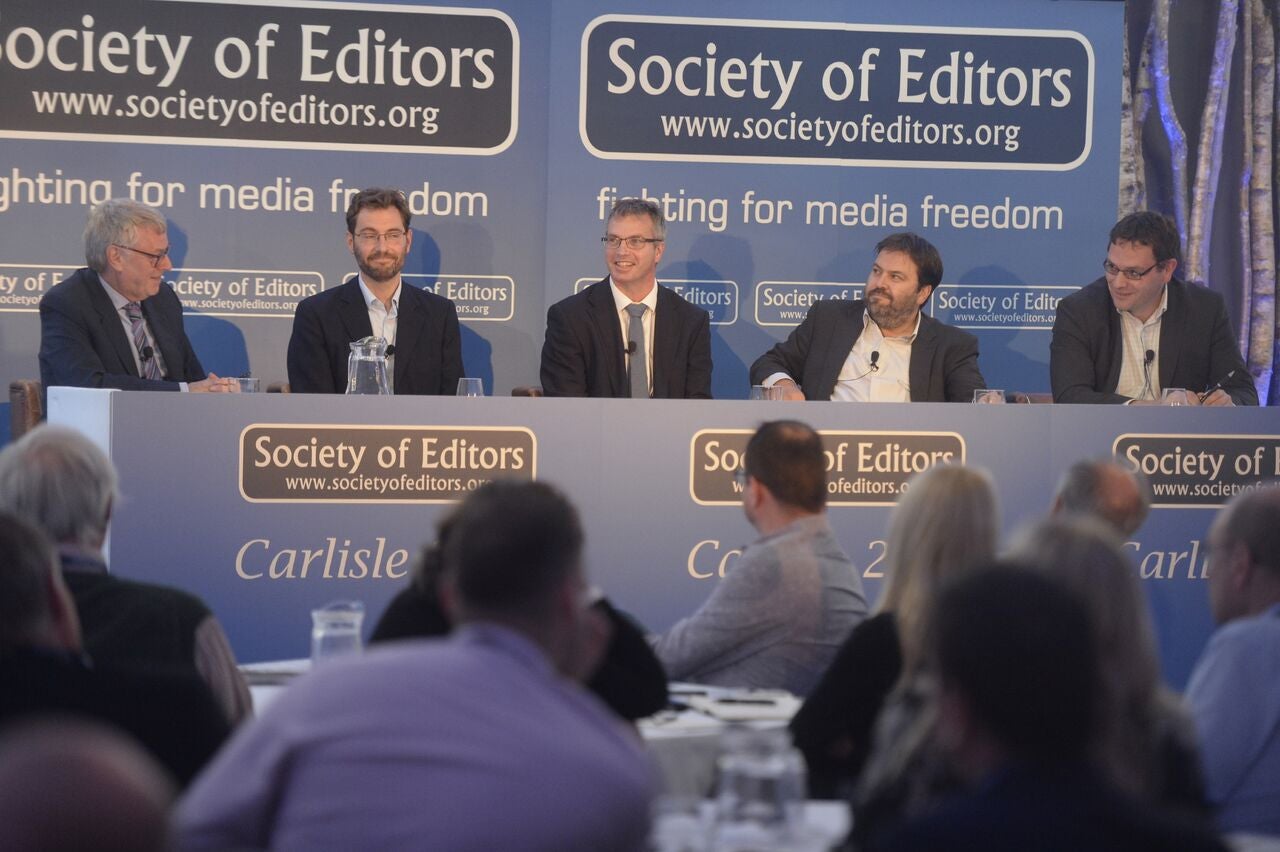
Some 150 “local democracy reporters” paid for by the BBC, but working for local news organisations, could be in place next year.
The service is a bid to fill the so-called “democratic deficit” arising as the local press struggles to cover local councils as well has it has done in the face of continuing cutbacks.
Trials are already underway at two regional titles in the north east, with plans for more, and the “first signs are good” the Society of Editor’s conference in Carlisle heard today.
It is understood a proportion of the 150 will be sent to cover regions across the country, with news providers using a licensing system to access content.
A news bank of audio and visual content that can be reused by news outlets after first being offered to licence fee-payers makes up another of the BBC proposals.
A shared data unit to train up journalists in data journalism and an audit looking at potential areas of crossover between the BBC and other news providers have also been proposed.
Matthew Barraclough, editor of the BBC Journalism Working Group, said an £8m subsidy had been set aside for the realisation of these four proposals.
He added the first local democracy reporters could be in place to cover local council elections in May 2017, a pronouncement supported by David Higgerson, digital publishing director at Trinity Mirror and Jeremy Clifford, editor-in-chief at Johnston Press.
Clifford, who claimed the proposals had been jointly worked on by the BBC and local press, said: “I think we will see that delivery coming in 2017”.
Barraclough said: “The types of stories produced [by the local democracy reporters] are going to enrich public life. It helps people get the information to play an active part in public life.”
Asked if the service risked a “one man, two governors” situation, Barraclough said: “If the editorial brief for the reporters is tightly enough down and the managing editor of the newsroom buys into this then there shouldn’t be a conflict.
“The conflict will arise if the managing editor is pulling in a slightly different direction… most of the time it should be well.
“We all have similar arrangements where we already work in partnerships and we pull our way through.”
Although supportive of the proposal, on which he has worked, Higgerson said: “A vast majority of us in this room still have council reporters who are doing very good jobs holding authorities to account.”
He told the conference the BBC had turned away from supplying reporters to cover court news because the corporation felt it “wouldn’t have much use for the content”.
He said the focus would be on “top-tier authorities” but ongoing trials looking at lower-tier authorities were being carried out.
Jon Harris, chairman of the National Association of Press Agencies, said NAPA news agency reporters should be considered for the new roles as they regularly write politically neutral stories, in line with the BBC’s own ethical code.
“This is the type of material we supply every day. We don’t back political movements, we don’t write editorials telling readers which way to vote,” he told the conference.
“I believe we would do the job properly.”
Email pged@pressgazette.co.uk to point out mistakes, provide story tips or send in a letter for publication on our "Letters Page" blog

